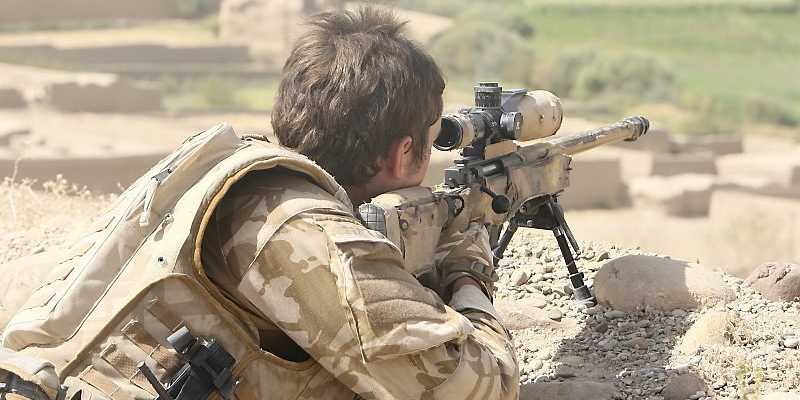The news of a British Sniper killing Taliban militants with a single shot has hogged media headlines. The Daily Beast considered the feat as “the greatest since the invention of the gun.”
Reportedly the lance corporal achieved the feat using an L115A3 gun, the Army’s most powerful sniper weapon.
“At a range of more than half a mile, the 20-year-old struck a terrorist who was rigged with explosives. The would-be suicide bomber’s vest detonated, killing five fellow fighters,” the Daily Beast reported.
The six-man shot, which took place in Kakaran in southern Afghanistan in December, foiled a large-scale coordinated suicide attack by the Taliban.
The Daily Beast quoted a British military official: “I’m sure there are tales of heroics from the Second World War which would rival it but certainly in recent memory no one has achieved such a thing.”
But the incident has been disclosed now as Britain is getting ready to withdraw all its combat soldiers by the end of the year.
With Western forces preparing to leave by the end of the year, Afghan forces have assumed responsibility 97 percent of the Afghanistan’s security.
Further, after decades of instability, Afghanistan will hold its first round of presidential elections Saturday, with an upsurge in bloodshed and violence expected as voters go to the polls.
This sniper incident killing six Taliban militants made me think about the overall mission of Western military intervention in Afghanistan.
It all began with the aim to uproot the al-Qaida after Sept. 11, 2001. However, as the Western military boots stayed on in Afghanistan, the rationale for a long-term war with the Taliban was harder to understand.
A serious engagement to uproot radical terrorist groups ultimately turned into a wider conflict with the Taliban that now shows no signs of ending.
Almost 12 years after 9/11, the fall of the Taliban regime and the installation of the UN-approved International Security Assistance Force , Afghanistan still remains a conflict zone with growing uncertainty, fragile security and increasing violence.
In this light, could we consider the achievements of ISAF in Afghanistan as multilateralism at its best?
Does this one lethal shot killing six Taliban signify that the future of Afghanistan goes to safe and secure hands?
Ironically, the future of a post-2014 Afghanistan is something that is hard to predict. Most of the answers and solutions are speculative.
In fact, there is no easy way to assess this complex military operation and distinguish victory from defeat until the outcome of the conflict is final.
With Hamid Karzai stepping down, Afghanistan is already battling with the absence of effective Afghan leadership and bleak possibilities of winning a viable public support.
Further the challenges posed by insurgent sanctuaries in Pakistan and the ability to contain the disparate militant groups will prove crucial determinants in sustaining security and stability within Afghanistan.
The West could still debate that it would be difficult for the Taliban to overthrow the Afghan army since it is stronger, better trained and has international support.
In my opinion, with the withdrawal of troops this year, Afghanistan will still be a failed state with a potential of increased chaos, sporadic incidence of violence and bloodshed when the Afghan security forces take charge.
Abdul Kuddus is a Delhi based passionate blogger and works at Tata Consultancy Services. He is a learning solutions consultant by profession and has been writing for different websites.
